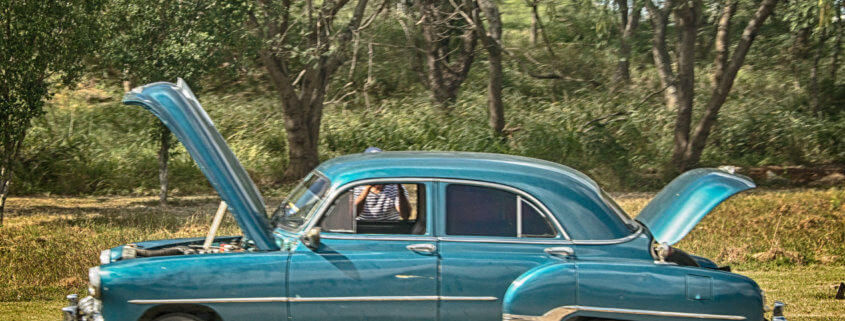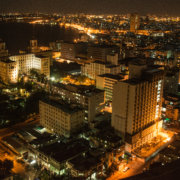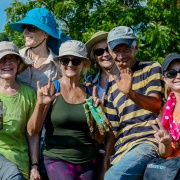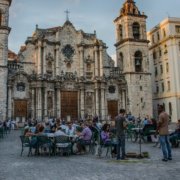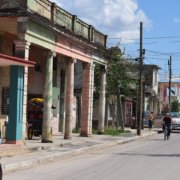What ‘Life In The New Cuba’ Is Really Like
Broadcast on NPR April 13, 2014
Summary:
Since Fidel Castro ceded authority to his brother Raul in 2006, life in Cuba has slowly been changing. Young Cubans are more comfortable talking about their government, and cellphones have begun to open up the island more, connecting it in a small way to the outside world. Julia Cooke has witnessed the changes firsthand. She traveled to Cuba as a college student in 2003, and it so affected her that she returned in 2008 and began a five-year chronicling of post-Fidel society.
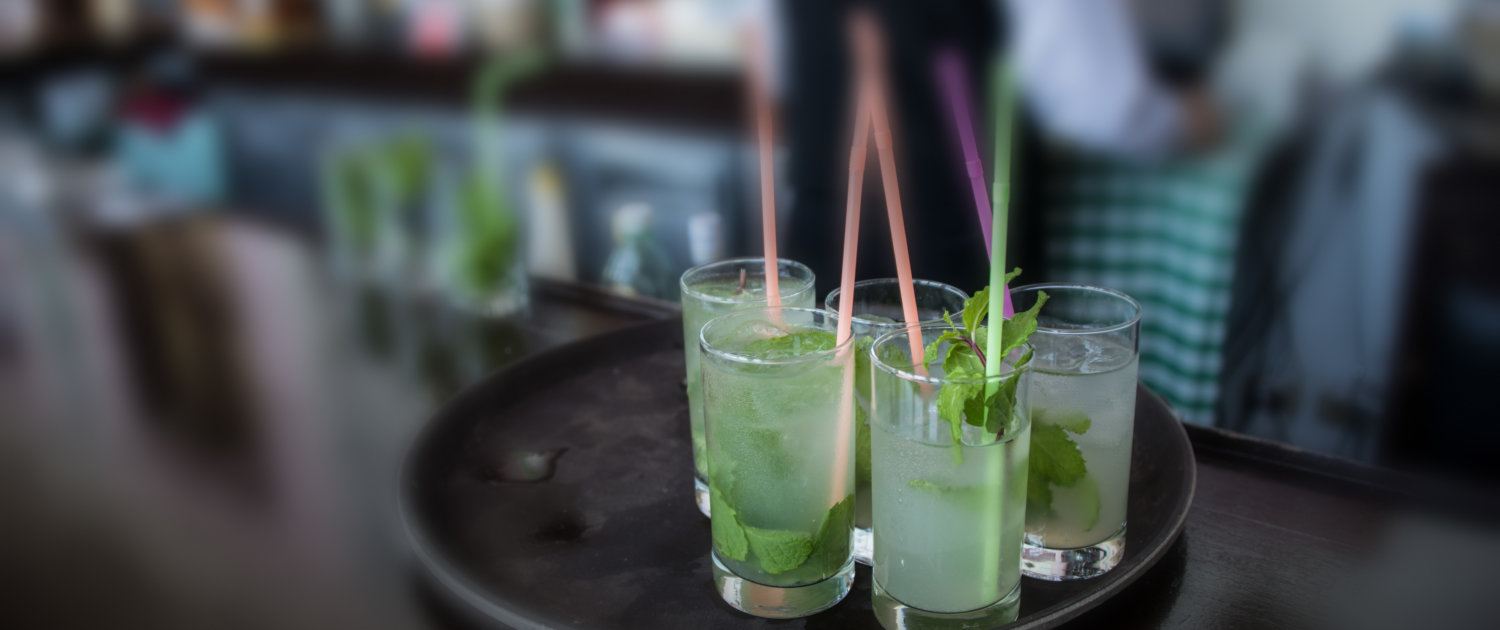
The other side of paradise.
Cook’s book, “The Other Side of Paradise: Life in the New Cuba” describes how her first trip helped dissolve her preconceptions about Cuba. “The media situation here with Cuba is primarily dominated by politics and clichés … and I think actually daily life is much more interesting than I had been led to believe, ” she tells Tess Vigeland, guest host of All Things Considered. “And so I wanted to go back, especially on the verge of this cataclysmic change that was starting to happen — the departure of Fidel from the scene into the background — and find out how things actually functioned.”
Highlights from the interview:
On the confusing economy of Cuba:
“In order to get any simple commodity, you have to figure who’s selling it, and who needs to be buying it. So it’s just a matter of spending a lot of time and asking a lot of questions. I think that was one of the things I enjoyed most about being in Cuba was the almost childlike position that it put me in. I had to ask so many questions and be so prepared to have everything — all my preconceived notions — blown out of the water. Things as simple as where to buy fish. You’re on an island. You think there should be fish everywhere, and there aren’t.”

On the Cuban black market, and buying Serrano ham:
“It was the moment I felt like I meant something to someone in Cuba, when a friend of mine, an artist friend, gave me the phone number of his black-market food provider. Because it’s kind of a dangerous thing: The black market food providers are obviously functioning illegally. And it meant he trusted me, first of all. It also meant he cared about me enough to provide more demand for the thing he also wanted, which could potentially drive up the prices of these items on the island.”
So I called him and I was like, “What do you have?” And he was like, “I’ve got blue cheese, I’ve got parmesan, I’ve got Serrano ham, I’ve got smoke salmon, ” and he rattled off this list. And I was like, “I want Serrano ham, I want parmesan cheese and I want smoked salmon.” And he just showed up the next day with this big bag full of stuff, and I paid him.

On traveling under the radar in Cuba:
“It was stressful. I was there on a tourist and then a student visa. I didn’t want to get a journalist visa because the journalists I had known that had gotten journalist visas from Mexico City were coddled. They were given permission to do certain things; they were very much on the grid in Cuba. I didn’t want that for myself. … I wanted to be able to interview who I wanted to be able to interview, but that meant I was constantly afraid of being asked to leave.”
On American misconceptions about Cuba:
“I’ve gotten so many comments recently that people are surprised to hear that Cubans don’t hate Americans. And you know, I never met a Cuban who didn’t have a family member of some sort who was living abroad. So Cubans are a much more sophisticated bunch than I think many Americans think they are. And there is zero animosity on the part of the Cuban people toward the American people. I think that’s one really unique thing about Cuba is that contemporary Cuba is very cognizant of how detached politics is from life. … It’s second nature to them to say, ‘Your government stinks, but come on in and have a rum with me.'”
You might also like:

